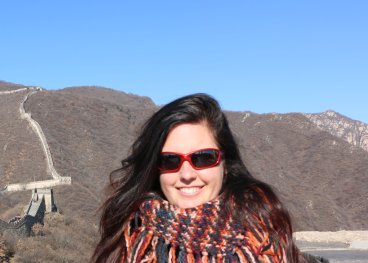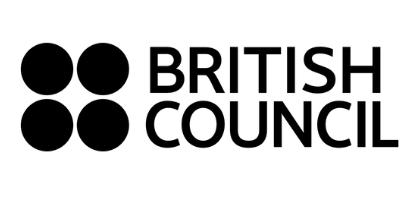Calipso-De-El-Callao

The link between the UK and Venezuela is locked up in song. The knowledge of which is held by the folk musicians, ethnomusicologists, and multi-generational communities. This work celebrates Venezuela’s cultural heritage, while exploring its connections to the UK.
Project details
| Project lead | Sam Jones |
|---|---|
| Start date | 21 February 2025 |
| End date | 21 October 2025 |
Calipso-de-El-Callao, led by Sam Jones at the Centre for Heritage, Culture & Society and in partnership with Guillermo Lares and Luzmira Zerpa, explores cultural ties between Venezuela and the UK through music, film, and research. Celebrating El Callao’s rich heritage—shaped by African, Afro-Caribbean, and European influences. By uniting musicians, filmmakers, and researchers, it fosters intercultural dialogue while preserving and deepening understanding of these traditions. Through creative exchange, the initiative highlights the historical and contemporary significance of El Callao’s music and culture and uncoves unexpected links with Cornwall.
Our project celebrates all forms of minority cultures—or cultures in general—as a way to foster deeper appreciation and understanding in a meaningful and respectful way. This project serves as an example of how, with the right facilitation, it is possible to learn from and share the nuances and differences between cultures while also celebrating their commonalities. It has the potential to bridge worlds that, while seemingly far apart, are deeply aligned in many ways—whether through seasonal celebrations, shared spaces, parades, or the experience of oppression and cultural reclamation.
Our project incorporates,
-
The establishment of new bands and recording of new music
-
The hosting and participation in feasts and community events
-
The hosting of conferences and round table discussions
We will do this across key geographies and feast dates. Engaging with Cornish and Venezuelan traditions
Themes of Enquiry
1. Syncretic Traditions & Pre-Colonial Roots: Catholicism in Venezuela allowed for the continuation of pre-Columbian traditions under the guise of saint celebrations, similar to how Cornish feast days retained pre-Christian elements despite religious suppression. This syncretism is a key area of exploration.
2. Cornish Miners in Venezuela: While Cornish culture faced suppression, Cornish miners played a significant role in shaping the colonial structures in Venezuela. This dual role—being both oppressed and, in some cases, oppressors—is a sensitive and critical historical layer to examine.
3. Mining Migration & Cultural Transmission: There is a historical connection between Cornish miners and El Callao, but tracing cultural remnants (such as music, language, and processions) is challenging due to disruptions in traditions and historical gaps.
4. Potential for Cultural Exchange: A deep dive into the potential for cultural collaboration could explore opportunities for integrating Cornish and Venezuelan traditions in festivals, such as bringing elements of Venezuelan culture into Cornish celebrations. An Eisteddfod-inspired approach for Gorsedh Kernow (Cornish Bardic Festival) could foster greater cultural exchange.
5. Calypso & Bardic Traditions: There is a fascinating parallel between Calypsonians and Cornish Bards—both groups are cultural carriers, improvising and using performance to address social issues and cultural realities.
6. Music & Linguistic Traces: Exploring the presence of English words in Venezuelan folk music could reveal insights into linguistic and cultural transmission. This could be connected to oral histories, storytelling, and the generational passing of musical traditions.
7. Modern Cornish Identity: The resurgence of Cornish identity today offers a unique opportunity to draw parallels with El Callao’s efforts to preserve its own traditions. This revival could provide insights into cultural survival and transformation.
Activities:
1. Research & Documentation:
- Compare Syncretic Traditions: Research how Venezuelan traditions were preserved through Catholicism, and compare them with Cornish feast days that retained pre-Christian elements. Identify key examples and sources.
- Document the Role of Cornish Miners in Venezuela: Gather archival materials, oral histories, and academic research on the Cornish miners’ impact on El Callao and their role within colonial structures.
- Trace Linguistic & Musical Transmission: Identify instances of English words appearing in Venezuelan folk music through music analysis and interviews with local musicians.
2. Cultural Exchange & Fieldwork:
- Engage with Cornish Tradition-Bearers: Meet with Cornish musicians, bards, and community members who maintain traditional feast day practices to understand their connection to Venezuelan celebrations.
- Plan a Research Trip to Cornwall (May): Attend events like Helston Flora Day (May 8) and other May Day festivals to document processional traditions and their potential links to Venezuelan carnival.
- Visit El Callao: Engage with musicians, carnival organizers, and local historians to understand how cultural traditions have survived and evolved.
- Facilitate a UK-Venezuela Cultural Exchange: Explore the potential for bringing Venezuelan musicians to Cornwall in September to participate in festivals and exchange knowledge.
3. Institutional & Community Collaboration:
- Academic Partnerships: Work with the Institute of Cornish Studies and other academic collaborators to integrate rigorous research into the project.
- Engage Cornish Festivals: Connect with Gorsedh Kernow to explore opportunities for a Venezuelan-Calypso-Cornish collaboration, potentially featuring this at their events.
The project will build on the work of Archivo Lares with Guillermo Lares and Luzmira Zerpa folk musicians and archivists in Venezuela. Guillermo Lares’s father, Oswaldo Lares, a studied architect who, in parallel with his professional activity, began to make field recordings of the traditional and indigenous Venezuelan music on from the early 1960's up until today. His search and fascination for finding the musical roots of his country led Oswaldo Lares to visit the rural villages outside Caracas investigating the many and varied musical cultures of the region and the complex relationship between Venezuelan folk music and its various origins, including the African (music of African descent).
Syncretic Traditions & Pre-Colonial Roots: Catholicism in Venezuela allowed for the continuation of pre-Columbian traditions under the guise of saint celebrations, similar to how Cornish feast days retained pre-Christian elements despite religious suppression. This syncretism is a key area of exploration.
Cornish Miners in Venezuela: While Cornish culture faced suppression, Cornish miners played a significant role in shaping the colonial structures in Venezuela. This dual role—being both oppressed and, in some cases, oppressors—is a sensitive and critical historical layer to examine.
Mining Migration & Cultural Transmission: There is a historical connection between Cornish miners and El Callao, but tracing cultural remnants (such as music, language, and processions) is challenging due to disruptions in traditions and historical gaps.
Potential for Cultural Exchange: A deep dive into the potential for cultural collaboration could explore opportunities for integrating Cornish and Venezuelan traditions in festivals, such as bringing elements of Venezuelan culture into Cornish celebrations. An Eisteddfod-inspired approach for Gorsedh Kernow (Cornish Bardic Festival) could foster greater cultural exchange.
Calypso & Bardic Traditions: There is a fascinating parallel between Calypsonians and Cornish Bards—both groups are cultural carriers, improvising and using performance to address social issues and cultural realities.
Music & Linguistic Traces: Exploring the presence of English words in Venezuelan folk music could reveal insights into linguistic and cultural transmission. This could be connected to oral histories, storytelling, and the generational passing of musical traditions.
Modern Cornish Identity: The resurgence of Cornish identity today offers a unique opportunity to draw parallels with El Callao's efforts to preserve its own traditions. This revival could provide insights into cultural survival and transformation.
RKE AMATA
This project culminates in a dynamic residency at the Academy of Music and Theatre Arts (AMATA) in August, bringing together Venezuelan musicians from El Callao and Cornish artists to explore and celebrate their shared cultural heritage. The residency will be a hub for research, collaboration, and performance, fostering a deep and lasting connection between the two communities.
Key Activities Leading to and During the Residency:
1. Research & Documentation (Building Foundations):
-
Comparative Syncretism: Ongoing research into the syncretic traditions of Cornish feast days and Venezuelan saint celebrations will inform the residency's artistic collaborations. We will continue to document these traditions, identifying key musical and processional elements.
-
Cornish Miners' Legacy: Archival research and oral history collection will provide a historical context for the musical exchanges, highlighting the role of Cornish miners in El Callao.
-
Linguistic and Musical Traces: Analysis of Venezuelan folk music will reveal the presence of English linguistic influences, providing a tangible link between the two cultures.
2. Cultural Exchange & Fieldwork (Preparation and Connection):
-
May Research Trip to Cornwall: This trip will provide crucial insights into Cornish May Day traditions, informing the residency's focus on processional music and festival practices.
-
Engagement with Cornish Tradition-Bearers: Meetings with Cornish musicians, bards, and community members will establish personal connections and facilitate collaborative opportunities.
-
Preparation for Venezuelan Musicians' Visit: We will work closely with musicians in El Callao to prepare for their visit, ensuring a smooth and productive residency experience.
-
AMATA Residency (August):
-
Bringing Venezuelan Musicians to Cornwall: The heart of the project, this residency will feature Venezuelan musicians from El Callao collaborating with Cornish musicians.
-
Collaboration with Lowender: Working with Lowender perranporth to help facilitate and host performances and work shops.
-
Collaborative Workshops and Rehearsals: Musicians from both cultures will engage in intensive workshops and rehearsals, creating new musical works that blend their respective traditions.
-
Public Performances and Presentations: The residency will culminate in public performances and presentations, showcasing the collaborative work and sharing the project's findings with the wider community.
3. Institutional & Community Collaboration (Building Bridges):
-
Academic Partnerships: Continued collaboration with the Institute of Cornish Studies and other academic partners will ensure the project's research rigor and facilitate knowledge dissemination.
-
Gorsedh Kernow Engagement: We will explore opportunities for a Venezuelan-Calypso-Cornish collaboration at Gorsedh Kernow events, further amplifying the project's impact.
-
Student Involvement: AMATA students will play a vital role in the residency, contributing to:
-
Facilitation: Assisting with workshops, rehearsals, and community engagement.
-
Technical Support: Providing technical expertise for performances and recordings.
-
Research: Assisting with documentation, data collection, and analysis.
AMATA's Role and Impact:
-
We’re working with The Centre for Heritage, Culture & Society as it is an interdisciplinary research centre that uses a critical lens to produce impactful research about people’s relationships with past, present and future places and landscapes which speaks directly with the aims of this project.
-
The AMATA residency will serve as a central hub for cultural exchange, fostering a deeper understanding of Cornish and Venezuelan musical traditions.
-
The project aligns with AMATA's mission to nurture imaginations, challenge perspectives, and articulate the value of art forms.
-
By involving students in all aspects of the project, AMATA will provide valuable learning opportunities and contribute to the development of future cultural leaders.
-
By working with Lowender we are able to broaden the reach of the project and work within the community.
Project team
Falmouth Staff Members

Sam Jones
Lecturer in Music Business and Management
I am an educator, creative producer & music consultant based in Cornwall and working internation...

Dr Laura Hodsdon
Associate Professor in Heritage, Culture & Society
Dr Laura Hodsdon is Associate Professor in Heritage, Culture & Society, working on heritage and ...
Additional staff members:
- Archivo Lares
- Luzmira Zerpa
- Dan Woodfeild (Lowender)
Partners
- Archivo Lares Are based in Venezuela and are providing operational support on the ground they are also a key partner within the research and dissemination of the knowledge exchange.
- Lowender are providing key connections with folk and Celtic musicians in Cornwall to collaborate with the Venezuela musicians. They will also provide key relationship and networking opportunities with festivals here in Cornwall and also oversee a good percentage of the research.
- Luzmira Zerpa
-
The Centre for Heritage, Culture & Society | Falmouth University
-
Academy of Music & Theatre Arts | Falmouth University
-
Cornwall Business School | Falmouth University
Funders
- British Council International collaboration grant

Outputs & outcomes
This project is ongoing and will take the form of:
- The research as posters
- The Short from film
- The performances
- The round table discussion
- The AMATA residency
- The new musical work